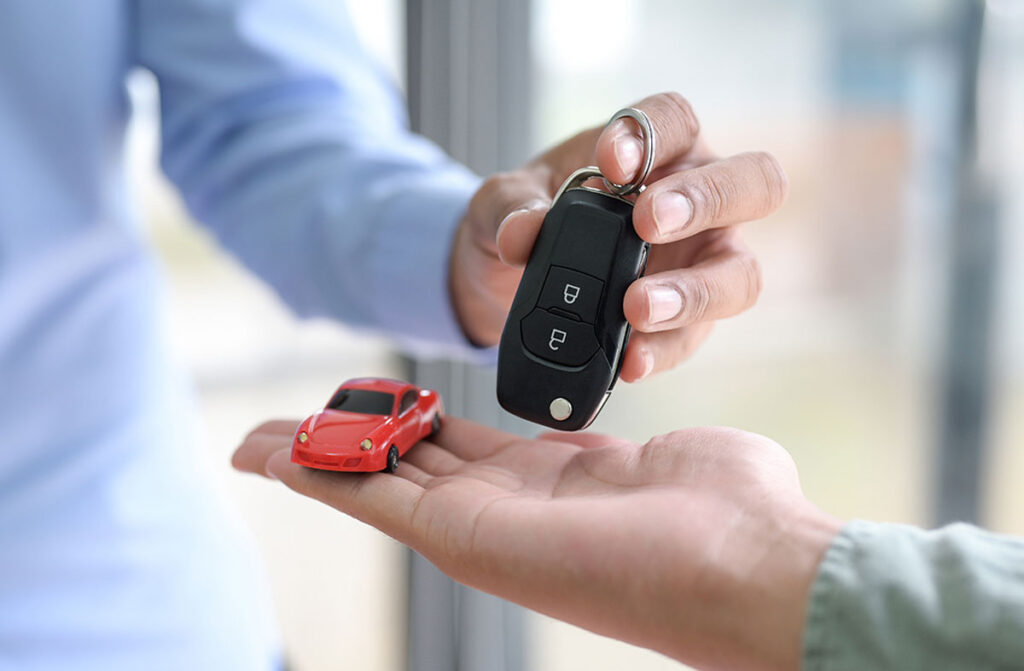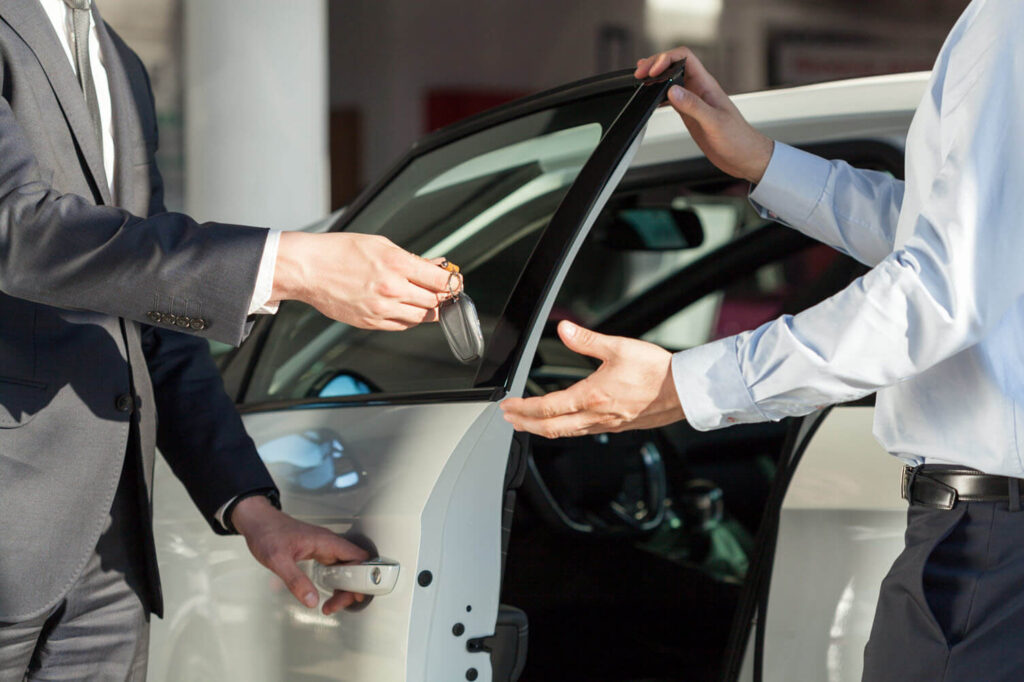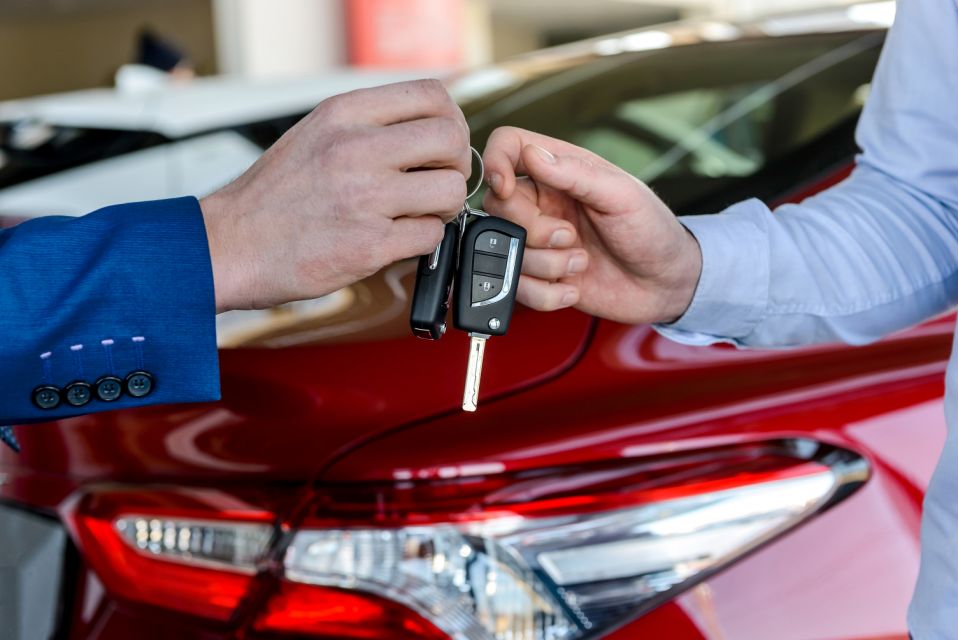Can International Students Buy a Car in the UK? Your Complete Guide
Are you an international student dreaming of cruising through the charming streets of the United Kingdom in your very own car? Well, the good news is that your dream can become a reality.
Yes, international students can buy a car in the UK, but they need a UK driving license and insurance. You can purchase a car, new or used, and ensure it’s insured and taxed before driving. Just remember, if you plan to stay more than six months, you’ll need a full UK license, which involves tests and training.
However, navigating the process of purchasing a vehicle in a foreign country might seem daunting at first, but fear not! We are here
Here you will see valuable insights, tips, and essential information that will make your car-buying journey as smooth as a leisurely drive through the British countryside.
Navigating the Road in the UK: Essential Information for International Students

Before you take the wheel in the United Kingdom (UK), it’s crucial to understand the legal requirements for both drivers and vehicles. These rules may differ from those in your home country. You can find detailed information on driving in England, Scotland, and Wales on the Driver and Vehicle Licensing Authority (DVLA) website at www.dvla.gov.uk.
For specific guidance on driving in Northern Ireland, visit the Driver and Vehicle Licensing Northern Ireland website at www.dvlni.gov.uk.
Legal Requirements:
To drive in the UK, you must meet several legal requirements:
- Driving License: You must possess a valid current license for the specific type of vehicle you intend to drive.
- Insurance: You need to be covered by insurance for the specific vehicle you’re driving.
- Vehicle Registration: The vehicle must be registered in the owner’s name and have valid road tax.
Driving Licenses:
Your eligibility to drive in the UK depends on the country that issued your license:
a) European Economic Area (EEA) Countries: If you hold a valid driving license from an EEA country, you can drive in the UK as long as your license remains valid. Alternatively, you can apply to exchange your license for a UK one.
b) Designated Non-EEA Countries: If your license is from a designated non-EEA country like Australia, Canada, or Japan, you can drive for up to 12 months from the date of your last entry into the UK. After this period, you must obtain a license.
c) Non-Designated Non-EEA Countries: If your license is from a country not designated in the previous category, you can drive for up to 12 months. To continue driving after this period, you need to obtain a provisional UK license and pass a driving test.
Mopeds and Motorcycles:
- If you intend to ride a moped or motorcycle, even if you have a car license, you must complete a Compulsory Basic Training (CBT) course. Successful completion of the CBT course provides a training certificate valid for two years. You’ll need to show this certificate when taking your practical test.
On the Road:
When driving in the UK, remember to:
- Drive on the left side of the road.
- Wear a crash helmet when riding a motorbike or moped.
- Ensure all occupants wear seat belts.
- Avoid driving under the influence of alcohol or drugs.
- Follow speed limits (usually 30 or 40 mph in built-up areas, 70 mph on motorways, and 60 mph on other roads, unless otherwise indicated).
- Adhere to minimum age requirements for different vehicle categories.
Buying a Vehicle:
- All vehicles in the UK must be registered, taxed, insured, and, if over three years old, possess a valid MoT (Certificate of Roadworthiness).
- Registration for a new car is often handled by the dealer, but you should ensure your details are correct.
- When buying a used vehicle, verify the ownership and ask for a purchase receipt.
- If you bring your vehicle from your home country, you can do so for up to six months, provided it’s fully registered and taxed there.
- To keep your vehicle in the UK for over six months, you must register it with the DVLA.
Road Tax:
- Make sure you pay road tax for your vehicle. Obtain a tax disc at a Post Office, and provide the necessary documents, including the registration certificate, insurance certificate, and MoT certificate if applicable.
Insurance Cover:
- Motor insurance costs vary based on factors like age, driving experience, location, and the vehicle’s age and type. Shop around for insurance providers and consider specialized options for students, such as Endsleigh Insurance. Ensure that your policy covers the UK and, if necessary, Northern Ireland.
Motoring Organizations:
- Motoring organizations offer services like breakdown assistance, recovery, insurance, and route planning. Membership and service fees may apply. NUS (National Union of Students) members may access special rates from certain motoring organizations.
Driving in the UK requires adherence to these legal requirements and an understanding of local rules and practices. Always drive responsibly and in accordance with the law to ensure a safe and enjoyable experience on British roads.
The Cost of Owning a Car in the UK: Factors to Consider
The cost of owning a car in the UK varies, and it depends on several factors. If you live in a major city like London, you can expect to spend approximately £1,500 to £2,000 per year on various expenses, including insurance, MOT (Ministry of Transport) test, consumables, tax, parking permits, and fuel.
However, it’s essential to note that the cost of owning a car in a city like London is a subject of debate and highly dependent on your usage patterns, local parking costs, and daily travel distance.
The Process of Buying a Car in the UK: Step by Step
If you’re considering buying a car in the UK, here are the steps you’ll need to follow:
Find a Vehicle: Start by searching for a vehicle that meets your needs and budget.
Complete an MOT Test: Ensure the vehicle has a valid Ministry of Transport (MOT) test certificate, which verifies its roadworthiness.
Find and Purchase Car Insurance: Secure car insurance, a legal requirement to drive a car in the UK. The cost of insurance can vary, especially for international drivers.
Payment and Documentation: Pay for the vehicle and obtain the V5C/2 from the owner, which is a temporary vehicle registration certificate.
Vehicle Tax: Pay for vehicle tax, which can usually be done online.
Take Possession: Drive the vehicle away and wait for the full V5C, the official vehicle registration certificate.
Insurance Considerations for Buying a Car in the UK
To buy and drive a car in the UK, you must have valid car insurance, even if you plan to drive occasionally or reside in the country for an extended period. Unlike some other countries, where car insurance is tied to the vehicle, the focus in the UK is on the individual operating the vehicle.
Further, obtaining car insurance with a foreign driving license is possible but often comes at a higher cost. International drivers are generally considered higher risk, which leads to higher premiums and increased likelihood of claims.
In the UK, insurance coverage is typically instantaneous when purchased online or over the phone. To drive legally in the UK, you must have a minimum of third-party liability insurance.
Moreover, if you have a significant driving history in your home country, it may be worthwhile to obtain records from your home insurance company. With these records in hand, you can try negotiating with a British insurer for potential discounts.
Buying a New Car in the UK
If you choose to go for a new car, there are some essential steps to follow:
Driving License and Insurance: Before hitting the road with your new vehicle, ensure you have a valid driving license and car insurance. The company you buy from typically handles documentation, including vehicle registration, which requires insurance and proof of your identity.
Methods for Purchasing New Cars: There are several ways to purchase a new car in the UK, including:
- Car Dealerships: These are ideal for obtaining competitive prices and financing packages. Clusters of dealerships in most UK cities make it easy to compare deals.
- Car Brokers: If you prefer a hassle-free experience, working with a broker can save you time and money. Brokers manage the entire buying process and negotiate with dealerships on your behalf.
Pros of Buying a New Car in the UK:
- Access to the latest safety equipment and technology.
- Easy resale of the vehicle.
- Lower car taxes.
- Fuel-efficient engines.
Cons of Buying a New Car in the UK:
- Higher purchase price.
- Demands more care compared to a used one.
- Experiences a higher value loss over time.
- For more information on obtaining a car loan in the UK, you can visit: How to Get a Car Loan in the UK.
The reliability and affordability of used cars in the UK have significantly improved. The average price for second-hand vehicles in the UK is approximately £19,254, making them a budget-friendly option.
Options for Buying a Used Car in the UK:

Car Dealerships: Numerous dealerships across the UK offer enticing finance packages and warranties. They also ensure you meet all legal requirements before driving away.
Private Owner: Buying from a private owner can be 15% cheaper than purchasing through a dealer. However, this approach may involve reduced legal protection and the absence of a warranty.
Online Purchases: The online sale of used cars has gained popularity in the UK. It allows you to manage everything online, from financing to vehicle delivery. You typically can cancel your purchase within 14 days after delivery and return the vehicle.
Pros of Buying a Used Car in the UK:
- More affordable purchase price.
- Lower registration and insurance fees.
- No need for vehicle testing, as it’s already in use.
- No waiting period to drive it off.
Cons of Buying a Used Car in the UK:
- Limited or no warranty.
- May require higher maintenance.
- Lower fuel efficiency.
- Some hidden damage may not be immediately detectable.
FAQs
Can I own a car on a student visa in the UK?
Yes, international students on a student visa in the UK can own a car. However, they must meet certain legal requirements, including obtaining a UK driving license and car insurance.
Which car is best for international students in the UK?
The choice of a car for international students in the UK depends on budget, needs, and preferences. Small, fuel-efficient cars are often popular due to lower running costs.
Can international students buy property in the UK?
Yes, international students can buy property in the UK. However, it’s essential to research the legal and financial aspects and consider your long-term plans.
Can an international student buy a car in Canada?
Yes, international students in Canada can buy a car. The process is similar to the UK, involving a driving license and insurance.
Do I need a UK license to buy a car?
No, you don’t need a UK driving license to purchase a car. However, you’ll need one to legally drive the car in the UK.
Can I drive Uber in the UK on a student visa?
Yes, international students on a student visa in the UK can drive for Uber or other ride-sharing services, but they must meet certain criteria and obtain the required licenses.
How much can an international student earn in the UK?
The earnings of international students in the UK can vary widely depending on factors such as part-time work hours, the type of job, and location. It’s essential to be aware of visa restrictions on working hours.
Final Words
To wrap up, international students can indeed purchase cars in the UK, but several important considerations come into play. To legally own and operate a car, they must obtain a UK driving license and secure proper insurance.
Moreover, Whether buying a new or used vehicle, it’s essential to ensure it’s insured and appropriately taxed before hitting the road. For longer stays in the UK, international students should be ready to take tests and training to get a full driving license.
Lastly, these steps are vital to navigating the regulations and enjoying the convenience of having a car while studying in the UK.







